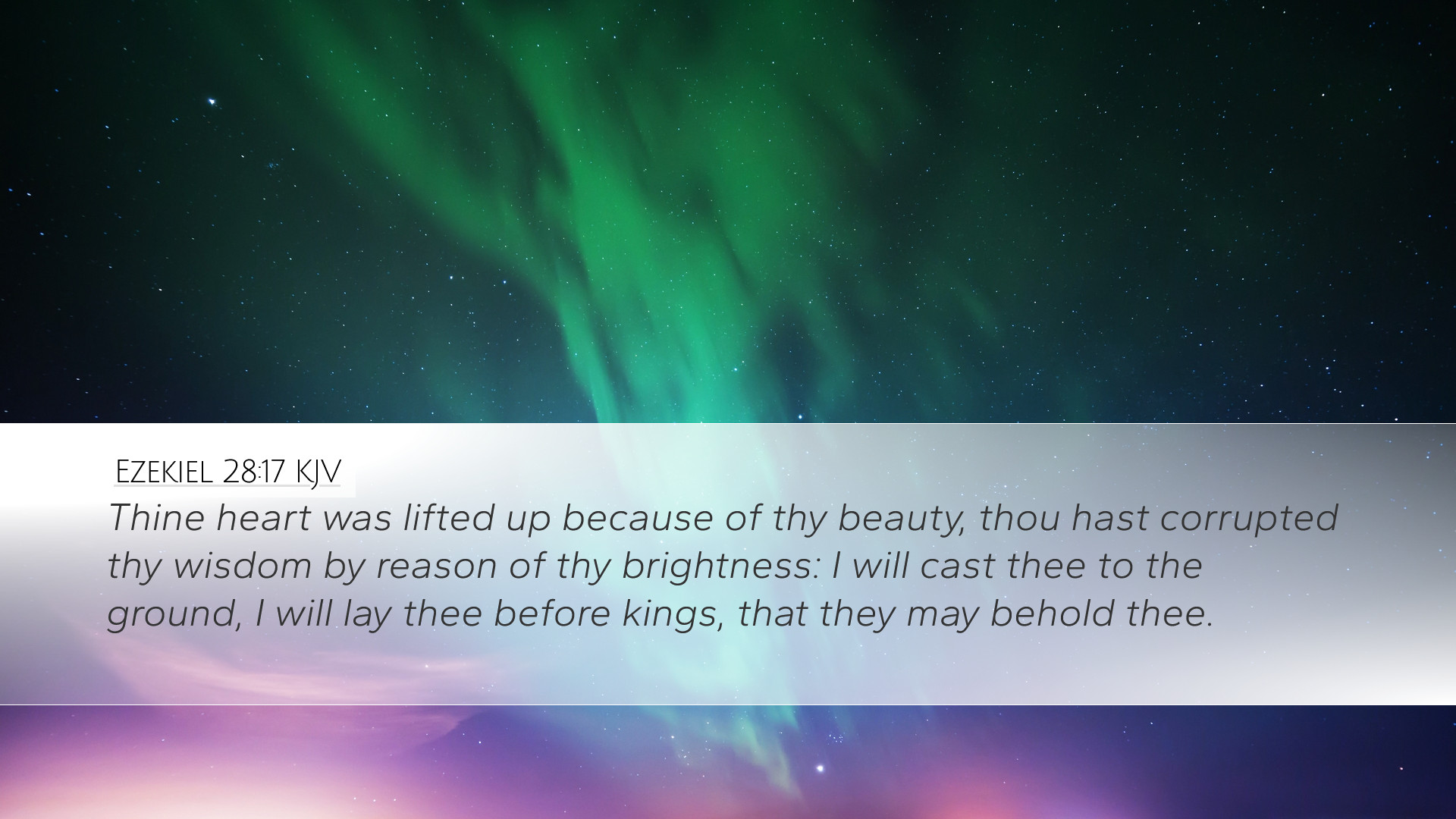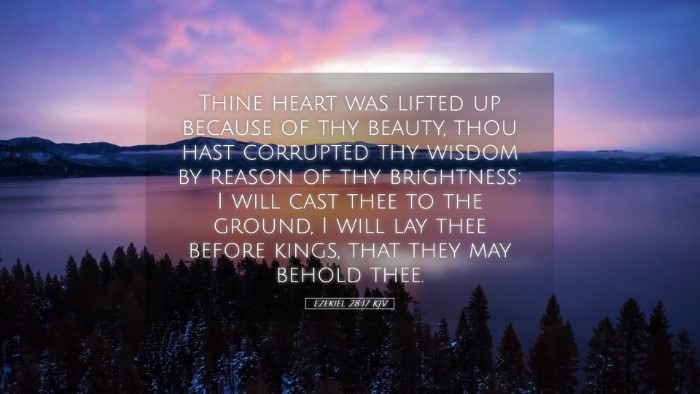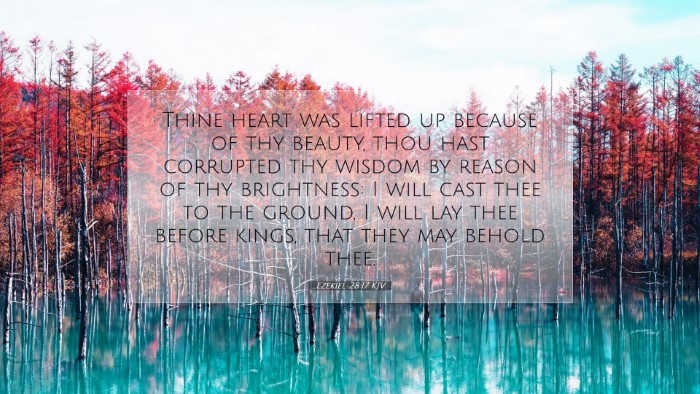Commentary on Ezekiel 28:17
Ezekiel 28:17: "Thine heart was lifted up because of thy beauty, thou hast corrupted thy wisdom by reason of thy brightness: I will cast thee to the ground, I will lay thee before kings, that they may behold thee."
Introduction
The straying of the heart and the inflation of pride are recurring themes in biblical texts, embodied strikingly in Ezekiel 28:17. This verse is part of a passage that metaphorically addresses the fall of the king of Tyre, representing a broader theological commentary on the nature of pride and judgment. The insights contributed by historical commentaries, such as those by Matthew Henry, Albert Barnes, and Adam Clarke, provide a rich tapestry of understanding for pastors, students, and theologians alike.
The Nature of Pride
Matthew Henry reflects on the heart's elevation due to beauty and wisdom. He notes that the king of Tyre, like many, became a victim of his own admiration and success. This warning against pride resonates throughout Scripture and serves as a reminder that personal qualities—no matter how admirable—can lead to downfall if not kept in humility.
Corrupted Wisdom
In this verse, the phrase “thou hast corrupted thy wisdom by reason of thy brightness” is pivotal. Albert Barnes elaborates on how brilliance can distort judgment. When individuals focus excessively on their own glory, they distort not just their perceptions but also the wisdom they once possessed. This idea of corrupted wisdom reinforces a theological dichotomy: the divine wisdom originating from God versus human wisdom, which is often tainted by pride.
God's Judgment
The divine pronouncement, “I will cast thee to the ground,” emphasizes the inevitability of judgment. Adam Clarke interprets this as a stark reminder of God's sovereignty over earthly matters. The phrase serves as a warning that regardless of one's temporal power or beauty, God’s judgment is both sure and impartial.
Implications for Leadership
This verse has profound implications for leaders and scholars. The admonition regarding inflated self-worth is especially relevant for those in positions of authority. Both Henry and Barnes consider how this message speaks to contemporary leadership—the importance of humility and the dangers posed by a blinding self-perception.
Theological Reflections
The cosmological and anthropological themes present in this verse glorify the majesty and justice of God. The repeated motif of "kings" in the latter part of the verse suggests an audience that will witness God's judgment. Clarke notes that this aspect contributes to the overarching theme of divine providence; God’s moral order will ultimately prevail, and the prideful will be laid low for all to see.
Conclusion
As we reflect on Ezekiel 28:17, we are confronted with a rich examination of pride, wisdom, and judgment. The warnings found within this verse are timeless for all believers. It is essential to remember that true wisdom and beauty come from a humble heart that recognizes its dependence on God. May this study encourage a spirit of humility and a pursuit of God’s glory above all else.


